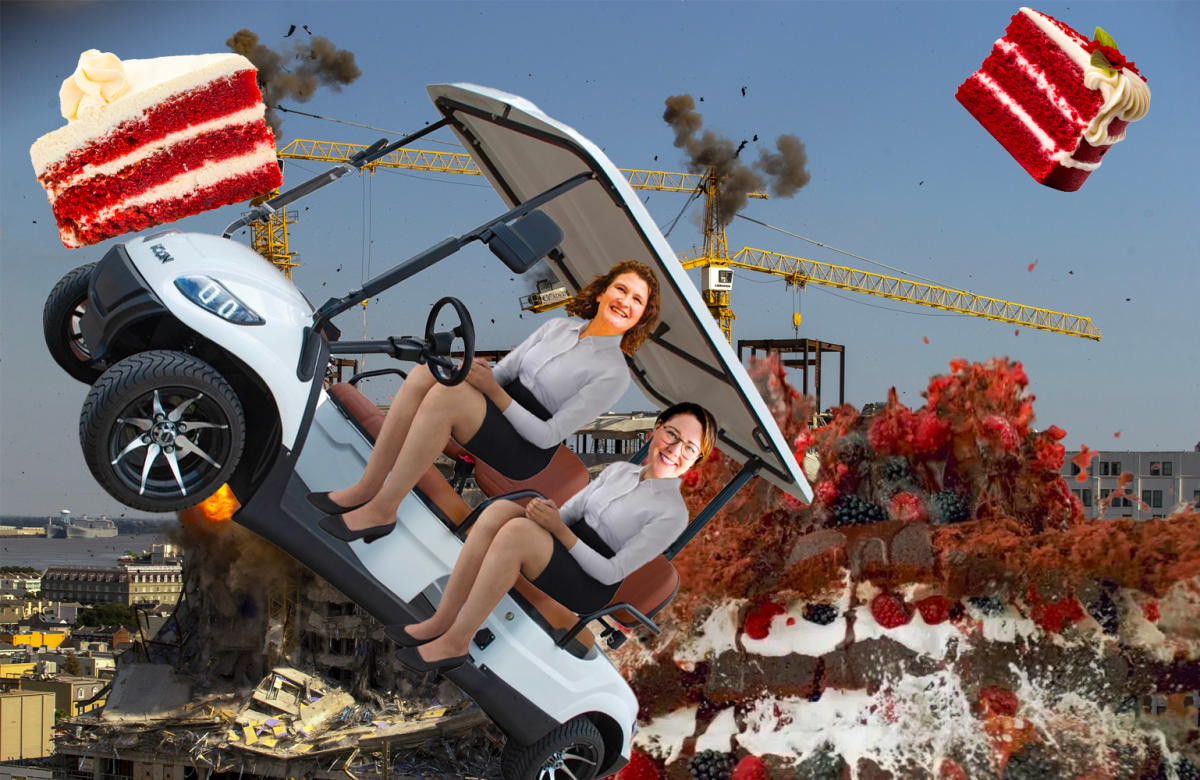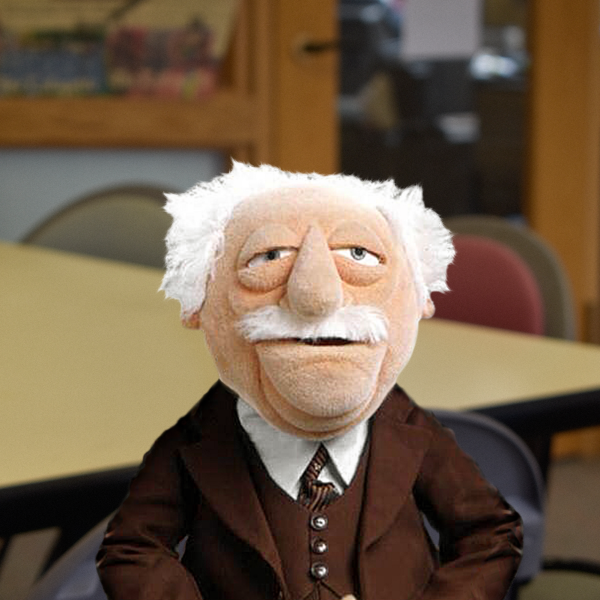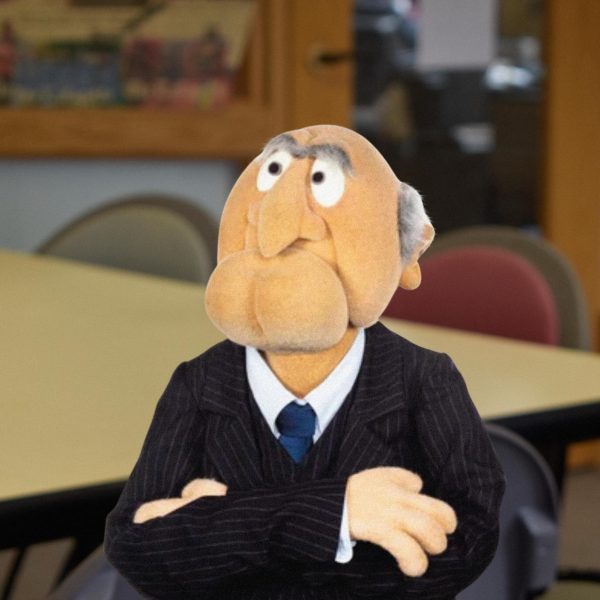A shocking revelation has left the campus in shambles: McCartney II is not being built with steel but red velvet cake.
The startling revelation occurred after college President Nicole Hurd drove her golf cart into the structure while filming another episode of “Does Our President Have a Soul?” The guest star, vice president for student death Sarah Moschenross, refused to take a backseat and grabbed the steering wheel resulting in the crash.
Following the crumbling of the building, the construction crew humbly removed their hard hats revealing tiny chef’s hats underneath.
“We build to live, but we live to bake,” Vah NillaEcstract said. “We apologize to the campus for the homeless students next semester, but before you get angry, you must try this buttercream.”
Students have been complaining of being woken up by the construction for weeks.
“When students told us to stop using a jackhammer at 7 a.m., all I could do was laugh,” Bay Kingislife said. “It was a stand mixer!”
When questioned about how they got away with this operation, Notta Sheph only had this to say: “The engineers here barely count as engineers. Of course they couldn’t tell.”
Editor’s note: This is a satire article featured as part of our annual Scoffayette issue.







































































































